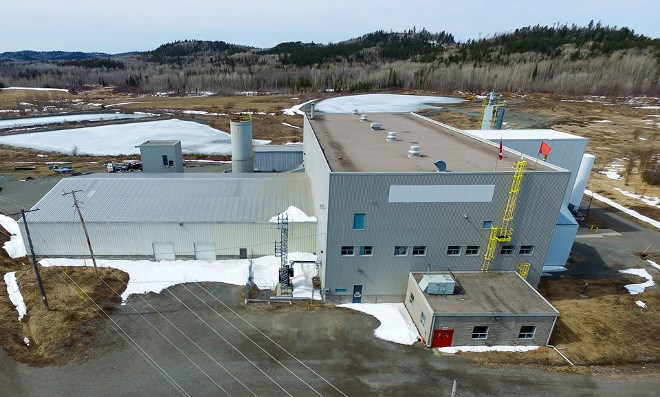The explosion in exploration and discoveries of strategic critical metals has placed Northern Ontario on the forefront of being a global supplier to the new sustainable energy and low-carbon economies.
Energy, Northern Development and Mines Minister Greg Rickford wants to boost Ontario's status as a "leading player" in the world's electric vehicle, stainless steel and high-tech supply chain.
In releasing a discussion paper toward establishing a Critical Mineral Strategy, Rickford said it's time to "seize this opportunity" to showcase Ontario's mineral opportunities, attract investment, support the global shift toward reducing greenhouse gases, and reduce the risk in supply chain disruptions of these minerals.
"Our government has an ambitious vision for critical minerals."
With the online paper, Rickford wants various stakeholders, Indigenous communities and other interested parties to come forward to participate in the formulation of a final strategy for the province.
The government is looking at various policy, regulatory and legislative approaches to reduce barriers and streamline approvals that will enable more exploration and development of critical minerals.
"We're sending a strong signal to the world that this province is open for business and open for jobs," said Rickford, in a March 10 web press conference.
"We're developing this strategy to advance our provincial status as a supplier of choice for critical minerals."
Critical minerals include chromite, graphite, nickel, cobalt, platinum group elements and others used in various defence, aerospace, digital, electronics, stainless steel, energy, health and life sciences applications.
The province has already jumped on the critical minerals bandwagon by making a sizeable recent investment late last year in supporting the restoration of a Temiskaming refinery to become an international toll processing plant for cobalt, the first of its kind in North America.
Toronto-based First Cobalt wants to be a key supplier to the North American battery electric vehicle manufacturers.
Company president Trent Mell said the timing of the federal and provincial investment last December provided a project development springboard to start hiring Northerners for plant jobs and ordering equipment.
"We're about 18 months away from producing North America's only source of battery-grade cobalt for the electric vehicle market."
Want to read more stories about business in the North? Subscribe to our newsletter.
In thanking the province for the investment, Mell said his company's vision is to produce the world's most sustainable cobalt.
A big attribute of investing in Ontario, he said, is a "clean grid" provided by hydroelectricity compared to the coal-powered electrical grids used by cobalt processors in China.
Mell fully expects First Cobalt and Ontario will be a world leader in the electric vehicle space.
"That step next is going to be developing that middle stream of the supply chain. We've got the mines, we've got the resources, we've got the auto assembly plants - we're part of that midstream - (we're) looking for to seeing the cathode makers and battery makers to set up shop here.
"I'm sure it's coming, and with a US$2-trillion green plan south of the border, that's poised to be unveiled, I think we stand to be a really big recipient of the windfall of the billions of dollars invested in the supply chain."
Indigenous engagement consultant Michael Fox views this strategy as an opportune time to "refresh and re-calibrate" the relationships that allow First Nation communities to benefit from these emerging mineral opportunities.
Sign up for the Sudbury Mining Solutions weekly newsletter here.
He expects more consultation by leading industry players that will build supply chain capacity among First Nation businesses and allow the companies to conduct operations in an environmentally responsible way.
Some of these collaborations are already happening in the Timmins area between Canada Nickel and Taykwa Tagamou Nation on a powerline agreement for a potential open-pit mine project, he pointed out.
"Let's be reminded, of all the jurisdictions in Canada, Ontario has the most mining and mineral-related project agreements with Indigenous communities across the country."
He expects this strategy will surely accelerate these partnerships between communities and industry.
Trevor Walker, president of Sudbury-based Frontier Lithium, said the strategy sends a strong signal to address the possibilities of this vital mineral commodities group, expected to be in a global supply deficit situation for many years to come.
"The message is clear to us. Ontario's pragmatic first step is to work with what you have."
Walker delivered a plug to his company's PAK lithium project in northwestern Ontario, host to four discoveries, including two high-grade deposits.
"Lithium is really difficult to find in high concentrations with low impurities and adequate size to be considered economic."
But a recent preliminary economic assessment of the project's mine potential delivered a 26-year mine life with revenues of more than $10.5 billion.
Government investment in downstream processing puts Ontario "on the map," he said, and boosts confidence in the upstream exploration activities and the proprietary lithium processing technology that they're currently piloting in Sudbury.
Walker vows that Frontier's PAK project will be a "north star" in achieving standards for sustainable development practices by providing employment and wealth creation for area First Nation communities, and allowing for Indigenous inclusion in decision-making at the board room level.
Economic Development, Job Creation and Trade Minister Vic Fedeli called the strategy's release a "fantastic example" of the role government can play in create new opportunities for investment in mineral development that will increase Northern Ontario's competitive edge.
Fedeli mentioned Ontario's recent investment in the First Cobalt refinery helps secure a "key building block" of the electrical vehicle value chain.
With the abundance of critical minerals in the North, a competitive business climate, the innovation and talent on hand, and the $6 billion pumped into Ontario's auto industry in recent months, Fedeli said Ontario is positioned to be a "global hub" for battery and electric vehicle manufacturing.




